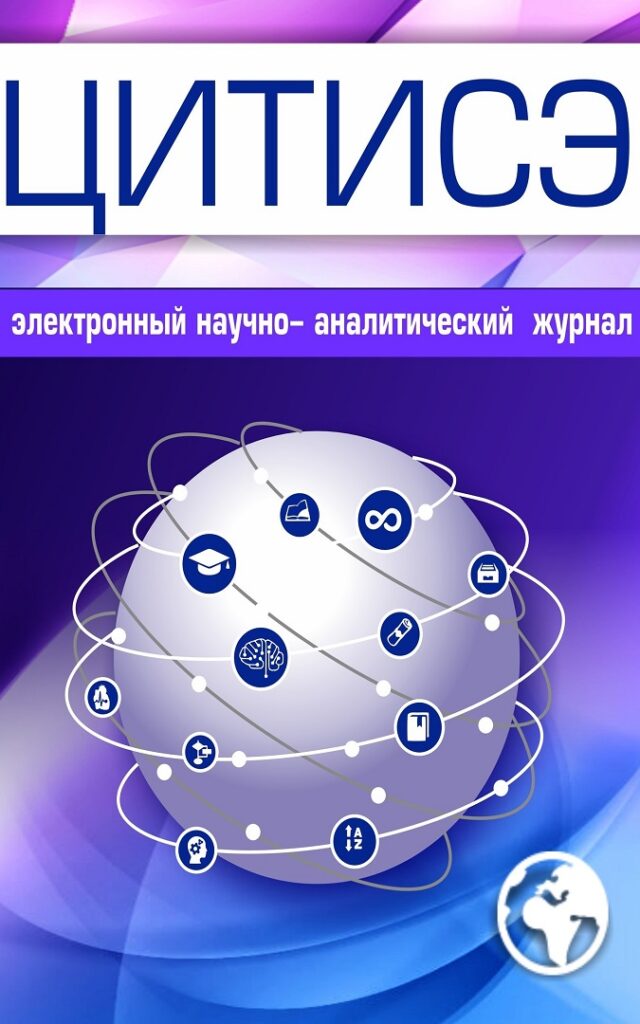Evseev V.O., Panova T.V.
EXPERT SYSTEM FOR ASSESSING THE STATE OF ETHNIC AND CULTURAL IDENTITY
Scientific article
UDC 159.9
Annotation. The purpose of the study is to study and evaluate the parameters of the nation’s self-regulation in order to preserve its ethno-cultural identity. The main system parameters/concepts ensuring the preservation of ethnic and cultural identity were chosen: management, organization, relationships and consequences. These parameters/concepts are differentiated into clarifying semantic sub-concepts. If these parameters/concepts are in the zone of influence and self-regulation of a nation, then it has all the conditions for preserving its ethno-cultural identity. Methodological basis. To build an expert system for assessing the state of ethnocultural identity, population theory, methods of system analysis, and content analysis were used. The practical significance of the research is expressed in the fact that an expert system was developed, according to which the state of the ethnocultural identity of the Russian-speaking population living in Crimea before its entry into the Russian Federation and after its entry into the Russian Federation was assessed. The results obtained from the expert system showed that due to joining the Russian Federation, the ethnocultural identity of the Russian-speaking population has left the extremely high risk zone. Conclusions. After joining Russia, the Russian-speaking population got rid of conditions that severely limited the possibilities for preserving ethnic and cultural identity. Also, now, when forming an ethnocultura identity, it is necessary to include and consider one of its main components – the patriotic component and the manifestation of moral and volitional qualities in the struggle against the cognitive and mental dominance of the United States and its allies.
Keywords: ethnocultura identity, national policy strategy, mental theater of military operations, Russian-speaking population, Republic of Crimea, self-regulation, export system.
References:
1. Grigoryan E.R., “Social garbage” as a threat to society. Region and the world. 2022. Vol. 13. No. 1. pp. 91-100. (In Russian)
URL:https://www.elibrary.ru/download/elibrary_47973024_11179330.pdf
2. Grishchenko N.V., Formation of the ethnocultural identity of adolescents in a multicultural educational environment: the mission of a school psychologist. Bereginya. 777. Owl: The community. Politics. Economy. 2022. No. 2-3 (53-54). pp. 130-139. (In Russian)
URL:https://www.elibrary.ru/download/elibrary_49520904_38316934.pdf
3. Zinchenko Yu.P., Shaigerova L.A., Dolgikh A.G., Savelyeva O.A., Methodological problems of studying the influence of bilingualism on cognitive processes and ethnocultural identity. Bulletin of the Moscow University. Episode 14: Psychology. 2019. No. 1. pp. 174-194. (In Russian)
URL:https://www.elibrary.ru/download/elibrary_37064249_99405038.pdf
4. Isaev A.V. Spiritual health as a moral norm: the experience of Russian philosophy//The scientist’s notes. 2021. No. 13. pp. 329-333. (In Russian)
5. Larskikh M.V., Vyunova N.I., Larskikh S.V. Spiritual health: definition, criteria, methods of achievement and prevention. International Scientific Bulletin (Bulletin of the Union of Orthodox Scientists). 2018. No. 4(20). pp. 59-65. (In Russian)
6. Popov M.E., Ethnic conflicts and problems of socio-cultural integration.
Social integration and development of ethnic cultures in the Eurasian space. 2019. Vol. 2. No. 8. pp. 97-102. (In Russian)
URL:https://www.elibrary.ru/download/elibrary_41427637_70162179.pdf
7. Savrutskaya E.P., Bondyreva S.K., Ustinkin S.V., Nikitin A.V., The role of cultural codes in preserving the integrity and ethnocultural uniqueness of national cultures. Technologies of social and humanitarian research. 2023. No. 3 (3). pp. 16-24. (In Russian)
URL:https://www.elibrary.ru/download/elibrary_55153857_83326547.pdf
8. Solovyova T.V., Bistyakina D.A., Pankova E.G. Analysis of the state and indicators of public health in the Russian Federation. Kazan Social and Humanitarian Bulletin. 2021. № 1(48). (In Russian)
URL: https://cyberleninka.ru/article/n/analiz-sostoyaniya.
9. Udaev R.A., Security and identity: ethnocultural aspects. Bulletin of the Kalmyk University. 2018. No. 4 (40). pp. 156-162. (In Russian)
URL:https://www.elibrary.ru/download/elibrary_36688941_29586923.pdf
10. Filatov A.S., Intercivilizational faults in the structure of geopolitics: civilizational satellites, ethno-cultural fragments and political satellites.Scientific notes of the V.I. Vernadsky Crimean Federal University. Philosophy. Political science. Cultural studies. 2021. Vol. 7 (73). No. 1. pp. 102-122. (In Russian)
URL:https://www.elibrary.ru/download/elibrary_49187696_47552316.pdf
11. Fursov K.K. The discourse of mass media hostility: the process of formation and structure of theory. Society and power. 2018. No. 5(73). pp. 46-56. (In Russian)


